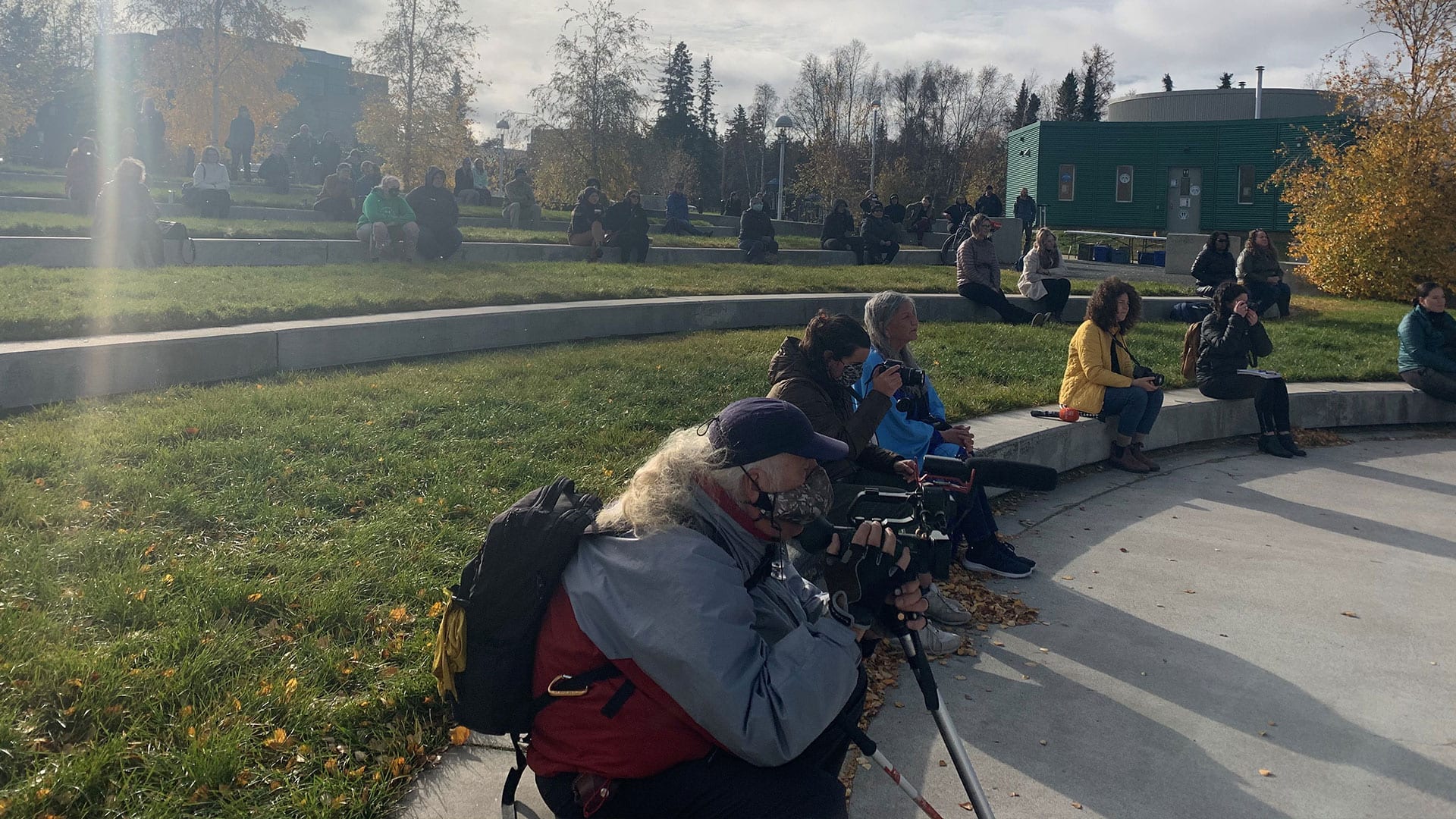A long line of supporters wrapped around the Somba ’Ke – Yellowknife City Hall amphitheatre for a Tree of Honour ceremony in recognition of missing and murdered Indigenous women, girls and two-spirit persons.
The ceremony was hosted by the Status of Women Council of the Northwest Territories (N.W.T).
Caroline Wawzonek who assumed the role as minister for the Status of Women portfolio in September, spoke of the territorial governments initial response to the MMIWG national inquiry’s final report.
“That was a good start. We are now working hard to create a framework for our own action plan. One that will do work to prevent further strategies and violence. To improve the lives and safety of indigenous women and girls and LGTBQ2S people,” Wawzonek said.
The final report of the national inquiry Reclaiming Power and Place, was released in June 2019.
It consisted of 231 calls to justice with many actionable items recommended to be taken by governments, organizations, communities and individuals.
At the Tree of Honour ceremony, Wawzonek recognized how past efforts on behalf of the government to address MMIWG failed to tackle core issues behind the tragedies.
“I am conscience that governments can and too easily have slipped into talking only to one another. Drafting strategies but failing to translate our strategies into implementation. But there does appear to be support and willingness at all levels of government,” she said.

The ceremony was the second of six events in the territory with other events scheduled for Aklavik, Behchoko, Fort Simpson and Hay River.
As repeated by many speakers, the likelihood of being affected by MMIWG is high in the north.
City Councillor Stacie Smith shared her close encounter in a dangerous situation as a student in Winnipeg.
She described commuting home after a night out and being chased by two men unfamiliar to her in a truck.
Smith said she took her chances by darting onto Portage Avenue and noticed the men had swung a U-turn.
“I ran as fast as my feet could carry me and I prayed to the creator make me fly.” She made it to a bus stop nearby just in the nick of time.
“I remember feeling terrified and frozen. I saw that truck slowly pick by the crowd and they scanned for me. I sat there praying please don’t let them know I’m here and please don’t let them catch me,” she said.
In a shaky but powerful voice, Smith shared her truth that she had feared in that moment if she had been found she would have been “dragged out of the crowd and no one would have cared.”
Smith advocated for a greater emphasis on teaching respect and practicing self-respect in an effort to keep women safe and recognize women as “powerful human beings.”
“We are the life givers. We’re the nurturers. It is our task and our goal in life to teach our next generation. Teach them kindness. Teach them love. Teach our girls to be alert. Teach them to follow their intuition, because that is our safety mechanism,” Smith said.
Read More:
Missing and Murdered Indigenous Women and Girls
Ruth Mercredi, a traditional healer with the local Arctic Indigenous Wellness Foundation, was on hand to assist attendees who needed support.
She spoke of commemoration for those she had lost including the legacies of family members like her nieces Janelle Mercredi and Shelly Mercredi and her daughter Deane Mickelson.
Mercredit had testified at the Inquiry hearings held in Yellowknife in 2019 and told the crowd that although the “worst feeling in the world is to lose a child,” she herself has had to find healing.
“We all have choices. We can choose to make changes and to heal ourselves and not choose violence. We are passing this violence down to our children,” Mercredit said.









